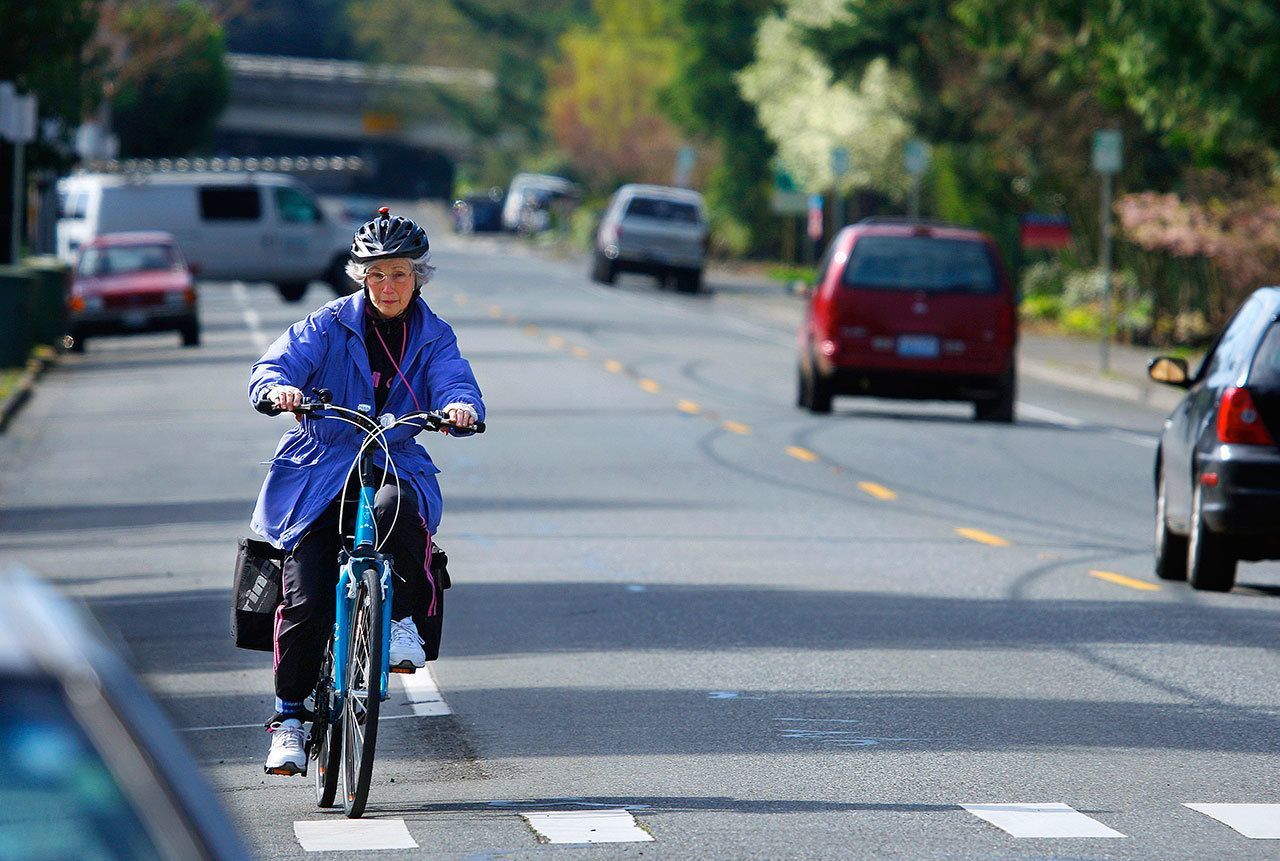By The Herald Editorial Board
Even for the state ranked as the No. 1 Bicycle Friendly State, it still takes a court to explain to some cities that bicycles are a legitimate form of transportation and not just something that kids ride around the neighborhood.
Last week a state appellate court ruled that cycling is as much a mode of “ordinary travel” as motor vehicles and that cities and counties have to provide safe roadways for all traffic, whether its done on four wheels, two wheels or two feet.
Pamela O’Neill filed suit against the city of Port Orchard after she was thrown from her bicycle during her daily commute home from work. O’Neill’s front wheel hit a gap in the road’s concrete, jerking her handlebars to the right, throwing her from her bike and causing serious injuries. A Superior Court judge granted the city’s motion to dismiss the case, ruling that O’Neill had “assumed the risk of poor roadway surface conditions,” the Associated Press reported.
The appeals court’s three-judge panel, however, overturned the judge’s dismissal and sent the case back to the lower court for further proceedings that follow the decision of the appeals court. While O’Neill assumed a general risk as a cyclist, the judges said, she didn’t “assume the enhanced risks associated with the city’s failure to repair an alleged defective roadway of which the city allegedly had constructive notice.”
To put a finer point on it, the judges added: “Bicycles are an integral part of Washington’s ‘statewide multimodal transportation plan,’” and should get the same consideration for safe roadways as do motor vehicles.
Actually, there’s seems to be broad understanding throughout the state that bicyclists and pedestrians deserve safe roads, paths and sidewalks.
The League of American Bicyclists, which has promoted cycling since 1880, ranks Washington as its No. 1 Bicycle Friendly state, counting its 16 communities, 41 business and one university as bicycle friendly.
The city of Snohomish is one of those 16 communities, earning a bronze rating based on its high percentage of arterial streets that accommodate bicycles and events such as bike rodeos, bike safety and other cycling-centered programs offered by the Snohomish Boys & Girls Club and the Snohomish Fire Department.
We’ve noted before that Snohomish County’s Safe Kids, Improved Pathways program is working to close the gaps in safe routes for kids on bikes and on foot on their way to and from the county’s 34 public schools. Each year about $550,000 from property taxes — about $5 a year for the owner of a $250,000 home — is used to widen roadway shoulders, create paths or build sidewalks and marked crosswalks near schools.
The federal transportation budget passed last year also recognizes the value of walking and cycling as part of our transportation options: A small percentage of highway funds goes toward grants for communities to improve safety for cyclists and pedestrians.
If we’re to see the benefits of cycling and walking to our communities — including less pollution, quieter roads and healthier bodies — roads and paths have to be built and kept safe. More separation from motor vehicles will be necessary, and roads and paths have to be well maintained.
Everyone assumes a risk by using a public road, but we also assume that our taxes are paying to maintain the safety of those roads, regardless of how many wheels are under us.
Talk to us
> Give us your news tips.
> Send us a letter to the editor.
> More Herald contact information.

























